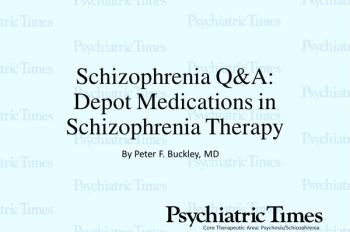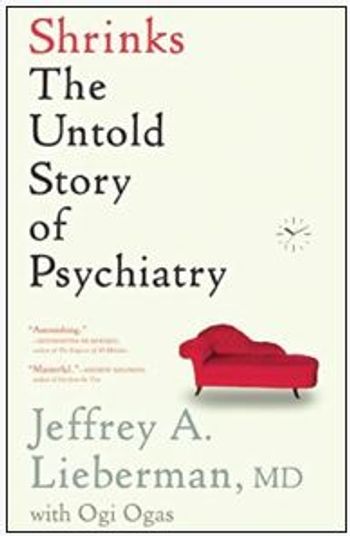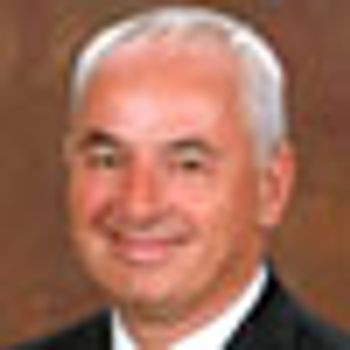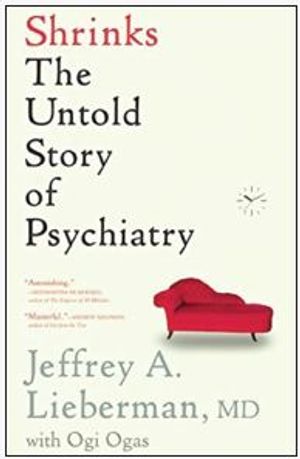
What 10 things do you need to know before entering a job interview?

Dr Buckley is a psychiatrist and serves as Chancellor of the University of Tennessee Health Science Center in Memphis, and with health science campuses and affiliated partnerships across the state of Tennessee. He is a member of the Psychiatric Times Editorial Board.

What 10 things do you need to know before entering a job interview?

Are you prepared for your next job interview?

What are some of the most important contemporary issues in schizophrenia and the ways research can inform exemplary clinical practice?

In this Special Report, clearly delineate the clinical context of selective psychoses.

As the countdown to the new year slowly dwindles down, remember the things you can be thankful for in 2020, as hard as it may have been.

In this video segment, Dr. Peter Buckley addresses 2 questions: • What factors do you consider when you offer depot medications to a patient with schizophrenia? • What can be done to encourage the use of depot medications?

Peter F. Buckley, MD introduces part 1 of our Special Report on schizophrenia.

The personalized medicine approach is predicated upon a greater understanding of the biology of illness and how it plays out-uniquely and specifically-for each individual patient.

The author of this book tells the story of the evolution of psychiatry from a place of skepticism and distain to its more recent emergence as a modern neuroscience.

Has any progress been made in our ability to manage negative symptoms of schizophrenia?

In schizophrenia therapy, the question arises whether a patient with hyper-religiosity as a main symptom can be treated with an antipsychotic (like clozapine) that targets that symptom.

What effect has the new antipsychotic Latuda had in patients with psychosis? Is a mood stabilizer as an adjunctive therapy necessary for schizophrenia or is the use of an antipsychotic alone sufficient?

Weight gain is a known side effect of some medications for schizophrenia. Here: strategies to prevent and manage weight gain.

In schizophrenia therapy, perphenazine can play in combating symptoms and in preventing relapse, though it can be associated with metabolic side effects.

Here: nutritional supplements and over-the counter medications in schizophrenia management.

In this video, international expert on schizophrenia, Peter F. Buckley, MD, gives an overview of what's new in schizophrenia and discusses the state-of-the-art of diagnosis and management of this complex and challenging disorder.

Does an early diagnosis of schizophrenia really make a clinical difference?

Project GREAT efforts in psychoeducation are geared toward educating providers about recovery so that they can, in turn, transform their own practices to be in concert with the recovery model.

The various treatment guidelines are a useful authoritative resource for the reader who wants to know more about this topic.

A reader asks an expert about differential features distinguishing between early stages of tardive dyskinesia and motor tics.

Consider these 2 scenarios:

Any survivor of a traumatic event is at increased risk for the development of a stress disorder. Considering the number of persons affected by events related to the global war on terrorism and several recent large-scale natural disasters, it seems inevitable that the number of persons who will experience a stress disorder will increase. It is also probable that many of these persons will at some point seek treatment in or be brought to an emergency department (ED).

Assessment and management of dual diagnosis--that is, the comorbidity of substance use disorder in persons with mental illness--is a major challenge for clinicians, especially in the emergency department (ED). It is widely accepted, but perhaps less well appreciated in the clinical realm, that substance abuse comorbidity is more the rule than the exception in persons with serious mental illness.

Sensitivity and specificity of a new bipolar spectrum diagnostic scale.

Are the metabolic side effects of the atypical antipsychotics fueling the next round of malpractice suits being filed against psychiatrists? Guidelines are being created, but how can clinicians protect themselves and their patients, while continuing to give their patients the best care available?

There are many factors that contribute to patients with schizophrenia not taking their medication, including side effects and lack of education. What can clinicians do to help their patients adhere to treatment? Should clinicians be spending more time educating their patients? How will long-acting medications affect adherence issues?

The field of schizophrenia recently has seen remarkable progress in the understanding and treatment of this disabling condition. Dr. Buckley provides highlights of this special report.

Published: June 14th 2022 | Updated:

Published: June 29th 2015 | Updated:

Published: May 16th 2016 | Updated:

Published: June 22nd 2010 | Updated:

Published: November 3rd 2010 | Updated:

Published: March 1st 2003 | Updated: